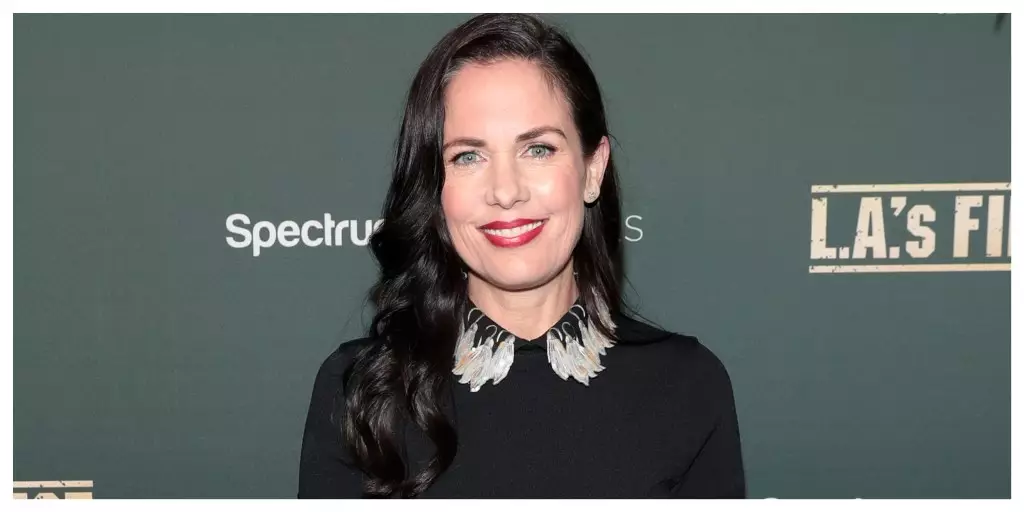In the ever-evolving landscape of television, looking back at past practices can often illuminate a path forward. During a recent keynote interview at the MIA conference in Rome, Katherine Pope, the president of Sony Pictures Television Studios, addressed several pressing issues, including the production cycles of popular series like “The Boys.” Her insights point to a growing recognition within the industry that the rigorous schedules of the past may hold valuable lessons for present-day production practices.
Pope’s remarks stemmed from her extensive experience in the television sector, including a decade at NBCUniversal prior to her tenure at Sony. She highlighted the necessity of adhering to strict timelines and budgets within the U.S. broadcast system, an approach that has lately been overshadowed by the creative flexibility afforded by streaming platforms. However, she believes that a return to some of this discipline could offer benefits to both creators and audiences alike.
As Pope elaborated, the industry’s transition from a highly structured broadcast model to a seemingly endless array of streaming options has led to a kind of creative gridlock. While the expanded budgets and lavish productions sparked resurgence in artistic expression, she warns of the pitfalls of this unbridled freedom. “Creative production budgetary friction is a good thing,” she stated, emphasizing that constraints often yield unexpected creative solutions. This sentiment resonates with many in the industry who understand that limits can, paradoxically, inspire greater artistic innovation.
Pope envisions a harmonious blend between the disciplined mentality of traditional broadcasting and the fresh narrative possibilities that have emerged in recent years. This dual approach may facilitate a more practical production framework that retains the artistic essence that modern viewers have come to expect.
At Sony Pictures Television Studios, Pope sees the potential for independence to serve as a cornerstone for sustainable viability in an increasingly fragmented market. Amid a backdrop of business model failures and constant shifts in viewer behavior, she lauds Sony’s commitment to storytelling as a guiding star. “I feel really lucky to be part of a company that is just focused on the reason we’re all here: great entertainment and stories told well,” she remarked, revealing a profound dedication to maintaining the creative core of the industry amidst external pressures.
This voice of determination is particularly important in today’s tumultuous environment, where writers, directors, and producers can feel overwhelmed by conflicting directives from various business strategies. By adopting a clear ethos centered on high-quality content, Sony continues to carve a niche that prioritizes audience engagement over merely following fleeting trends.
Pope accentuated the triumph of “The Boys,” an adaptation that has captured audiences with its subversive take on the superhero genre. Not only has the series grown in viewership—Season 4 boasted the franchise’s highest ratings to date—but its resonant themes and strong writing reflect Sony’s production capabilities and vision. “My holy grail has always been a show that continues to trend up as the seasons go,” she stated, emphasizing the importance of maintaining momentum in viewership as a measure of creative success.
The anticipated prequel, “Vought Rising,” was described by Pope as “like Mad Men meets The Boys,” hinting at a complex narrative filled with social commentary and character depth that fans of the original series have come to appreciate. The integration of such ambitious projects signals Sony’s aspiration toward sustained excellence in storytelling.
One area where Pope does express concern is in the shift towards data-driven decision-making within television networks. She believes that a heavy reliance on data analytics has led to delayed series renewals and uneven production timelines. Pope criticized this approach as it detracts from the viewer experience, stating, “The experience of watching eight episodes and then two years later watching the next eight is not a good fan experience.” The urgency for networks to streamline renewal processes is paramount in a time when audience loyalty can be fleeting.
Katherine Pope’s reflections offer a nuanced perspective on the current state of television production, advocating for a balanced approach that values both discipline and creativity. As the industry continues to navigate the complexities of modern storytelling, her insights can serve as a crucial guide for producers striving to create content that resonates deeply with viewers while maintaining a sustainable production model. This ongoing dialogue between the past and present may just provide the foundation for the future of television.

Leave a Reply